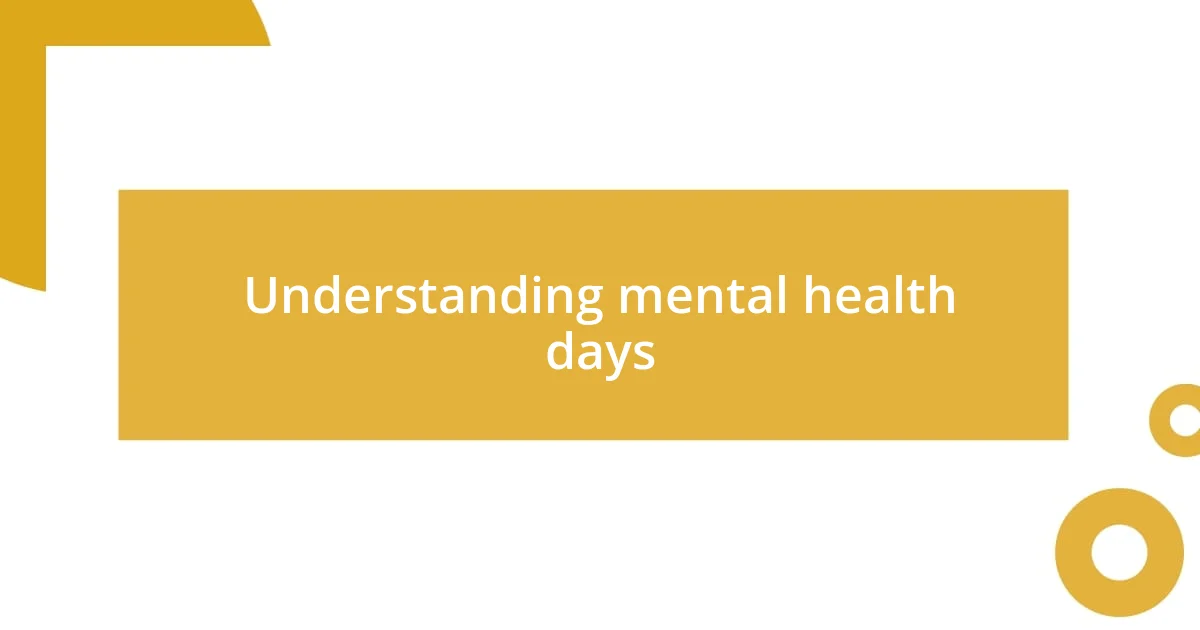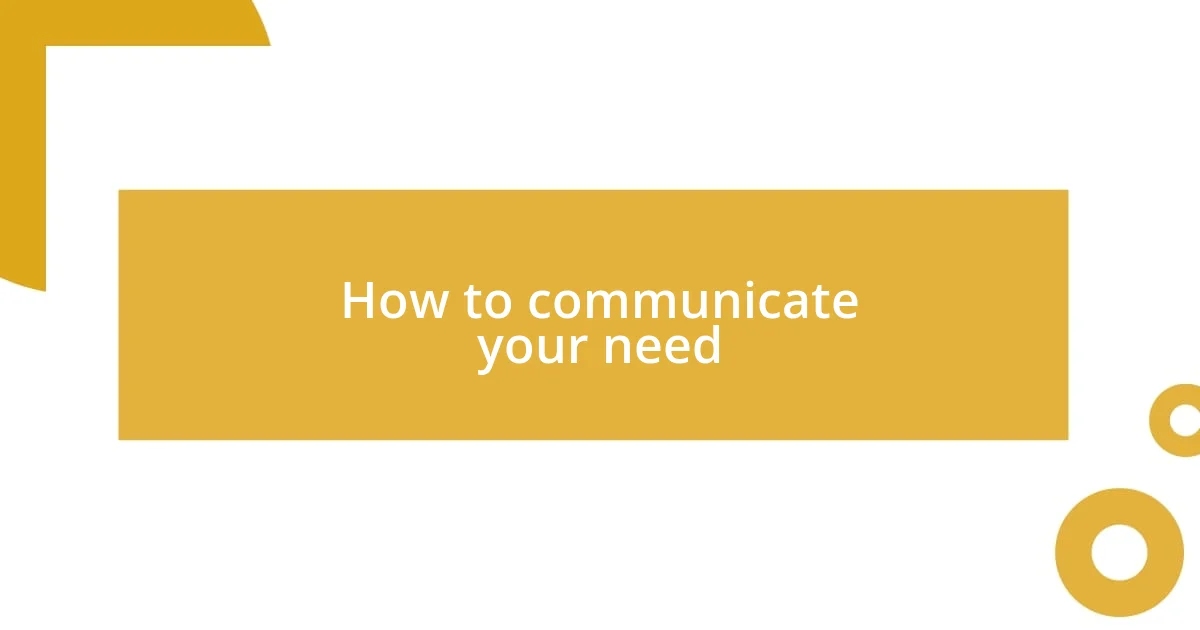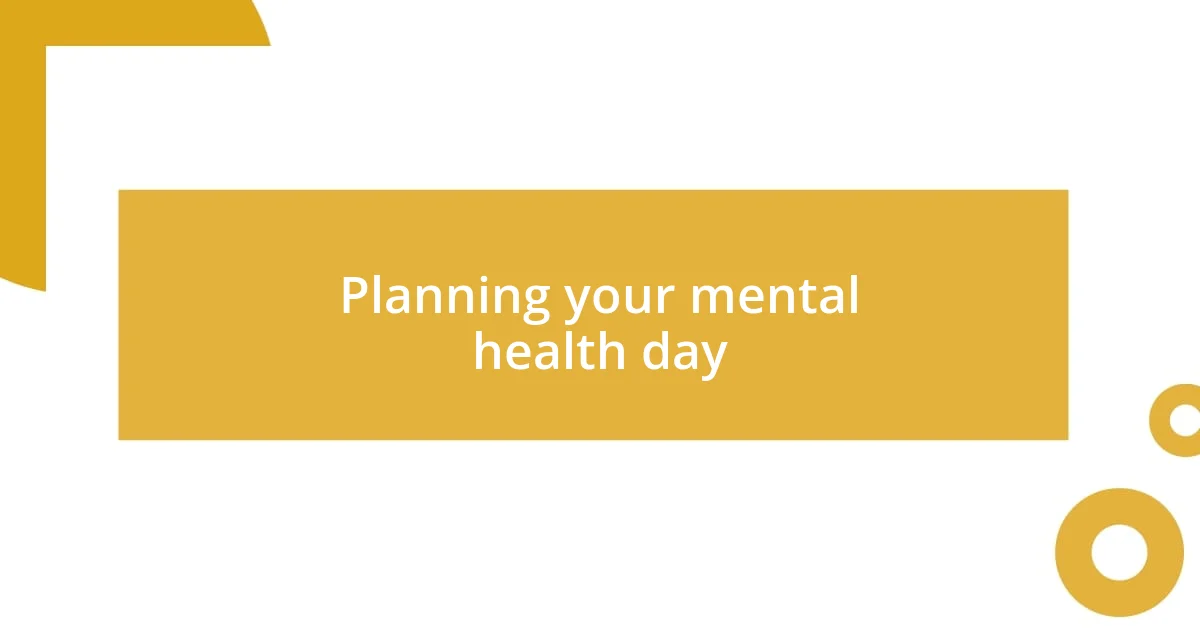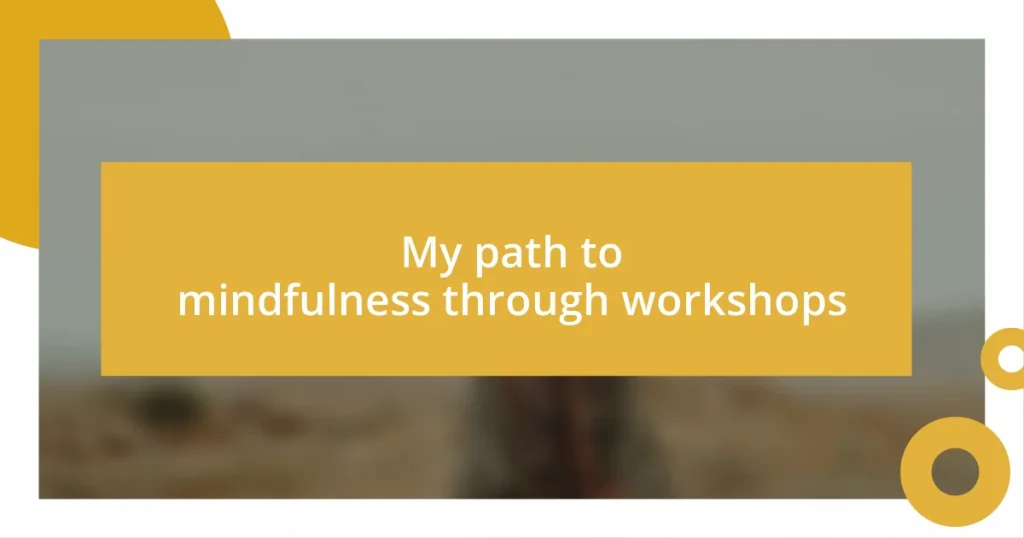Key takeaways:
- Mental health days are vital for emotional well-being and help prevent burnout, promoting a balanced life.
- Communicating the need for a mental health day should be honest and professional, emphasizing the positive impact on productivity.
- Planning a mental health day involves identifying rejuvenating activities and setting boundaries, while also disconnecting from digital distractions for effective restoration.

Understanding mental health days
Mental health days are essentially dedicated time off to focus on one’s emotional and psychological well-being. I remember a point in my career when I felt completely drained. I decided to take a day off just for myself, and it was liberating. It made me wonder: isn’t it important for everyone to have that space to recharge?
People often associate time off with physical ailments, but mental health days play a crucial role in preventing burnout. I’ve seen colleagues push through stress, thinking they had to appear strong. But isn’t true strength about acknowledging when we need a break? We should normalize taking time for mental health just as we do for physical health.
Understanding mental health days means recognizing their importance in maintaining a balanced life. When I take a day off for mental health, I often find clarity and renewed energy. It’s not just a day off; it’s an investment in my overall health. Have you ever experienced that refreshing feeling after stepping back when life gets overwhelming?

How to communicate your need
Expressing your need for a mental health day can feel daunting, but it’s essential to approach the conversation with honesty. I often find that being direct while maintaining a warm tone creates a safe space for dialogue. For instance, when I once explained my need for a day off to prioritize my mental well-being, I centered the conversation around how I wanted to return to work more energized and focused. This openness helped my colleagues understand that my request was not rooted in weakness but rather in the desire to be my best self.
Here are some tips on effectively communicating your need for a mental health day:
– Be clear and honest: State your reasons without oversharing. A simple explanation suffices.
– Choose the right moment: Find a time when your supervisor or colleague isn’t rushed to ensure they understand your message.
– Focus on the positive: Emphasize how taking this day can enhance your productivity and well-being in the long run.
– Remain professional: Use a calm tone and maintain respect for the workplace culture while expressing your needs.
– Follow up: After your day off, check in with your team to reassure them of your commitment and focus.
By laying out your needs clearly and respectfully, you not only advocate for yourself but also contribute to a culture where mental health is valued and understood.

Planning your mental health day
When planning your mental health day, the first step is to decide what truly rejuvenates you. For me, it varies from indulging in a favorite hobby to simply lounging with a good book. Have you ever noticed how spending time doing something you love can shift your mood immensely? That’s why I recommend creating a list of activities that help you unwind, so you know exactly how to spend your day when it arrives.
I’ve learned that setting boundaries is equally important when taking a mental health day. In the past, I felt guilty about stepping away, thinking I’d burden my colleagues. However, I soon realized that prioritizing my well-being ultimately benefits everyone. What about you? Have you ever felt that guilt? Shift your mindset; when you return refreshed, you can contribute more effectively to your team goals.
While you’re drafting your perfect day, I encourage you to disconnect from digital devices. One memorable day, I turned off my phone and spent hours walking in nature, soaking in the calm. This intentional break from technology cleared my head in ways I hadn’t anticipated. So, think about how you can make your mental health day a true escape from daily stressors. What restoration practices will you incorporate into your life to make these days worth taking?















